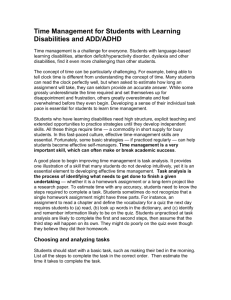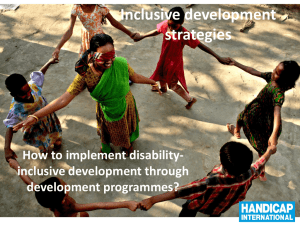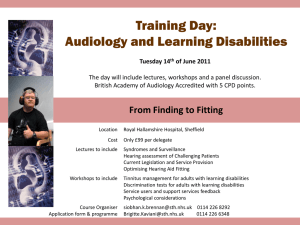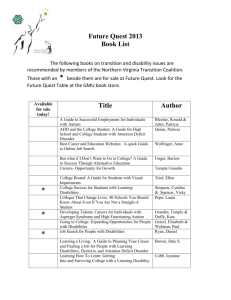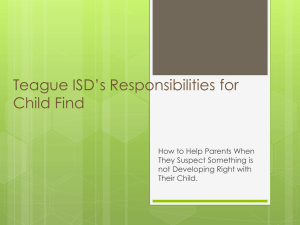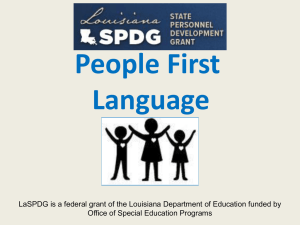Millennium Development Goals and post
advertisement
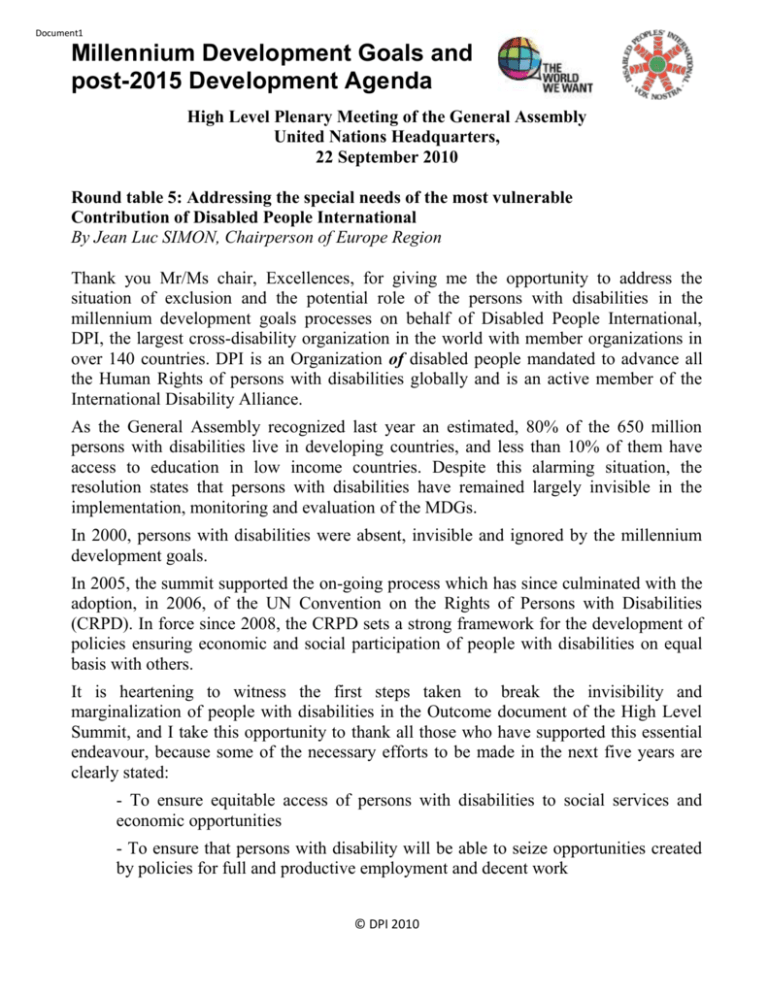
Document1 Millennium Development Goals and post-2015 Development Agenda High Level Plenary Meeting of the General Assembly United Nations Headquarters, 22 September 2010 Round table 5: Addressing the special needs of the most vulnerable Contribution of Disabled People International By Jean Luc SIMON, Chairperson of Europe Region Thank you Mr/Ms chair, Excellences, for giving me the opportunity to address the situation of exclusion and the potential role of the persons with disabilities in the millennium development goals processes on behalf of Disabled People International, DPI, the largest cross-disability organization in the world with member organizations in over 140 countries. DPI is an Organization of disabled people mandated to advance all the Human Rights of persons with disabilities globally and is an active member of the International Disability Alliance. As the General Assembly recognized last year an estimated, 80% of the 650 million persons with disabilities live in developing countries, and less than 10% of them have access to education in low income countries. Despite this alarming situation, the resolution states that persons with disabilities have remained largely invisible in the implementation, monitoring and evaluation of the MDGs. In 2000, persons with disabilities were absent, invisible and ignored by the millennium development goals. In 2005, the summit supported the on-going process which has since culminated with the adoption, in 2006, of the UN Convention on the Rights of Persons with Disabilities (CRPD). In force since 2008, the CRPD sets a strong framework for the development of policies ensuring economic and social participation of people with disabilities on equal basis with others. It is heartening to witness the first steps taken to break the invisibility and marginalization of people with disabilities in the Outcome document of the High Level Summit, and I take this opportunity to thank all those who have supported this essential endeavour, because some of the necessary efforts to be made in the next five years are clearly stated: - To ensure equitable access of persons with disabilities to social services and economic opportunities - To ensure that persons with disability will be able to seize opportunities created by policies for full and productive employment and decent work © DPI 2010 Document1 Millennium Development Goals and post-2015 Development Agenda In order for those pledges to become reality, I give to you few recommendations that our NGO has elaborated: 1. -Ensuring that all citizens needs and potentials are taken into account in any effort to measure progress in achieving the MDGs, whether in national statistics, data collection or specific survey so that we definitely break the vicious circle of invisibility which has marginalized us so far. 2. Ensuring that efforts towards universal primary education are truly inclusive and accessible to children with disabilities who constitute the largest group of children out of school today. 3. Ensuring that all efforts aiming at gender equality, women empowerment and maternal health are fully inclusive and accessible for women with disabilities who are among the most discriminated. 4. Ensuring that any development fund whether from multilateral and bilateral source or within debt relief system is inclusive and do not create new barriers to the social participation of people with disabilities. This has to be effectively reflected in all regulations of donor agencies and member states’ mechanisms linked to debt relief and poverty reduction. Any school, health facilities, training program, legislative reform funded that is not inclusive and accessible to all, whatever his or her abilities, is missed opportunity and waste of future resources. 5. Supporting stakeholders’ _effort to make MDGs inclusive and implement the UN CRPD both technically and financially, particularly by mobilizing knowledge and expertise of the people with disabilities and of their parents, and all additional resources needed. 6. Preparing, ensuring and supporting strong participation of persons with disabilities in the design, the implementation and monitoring of programs and policies in order to mobilize their experience and knowledge, as it is stated in the CRPD. People with disabilities, living largely in poverty, must not be seen only as part of the problem but also as a vital part of the solution. We know that we, people with disabilities, can contribute to the challenges the world faces and we want to add our capabilities to the common effort. Indeed, our experience of constantly overcoming barriers restricting our participation is also a unique source of knowledge, about the creation of alternative solutions to achieve our goals with optimal use of resources available. It is crucial that we become statistically visible in order to achieve the MDGs and to demonstrate the major economic charge of our invisibility, which is the root of our exclusion, our segregation, our dependence and our poverty. Member states and the United Nations system have 5 years to break the vicious circle of invisibility of persons with disabilities to fulfil their pledge as the Millennium Development Goals cannot, and will not, be achieved unless persons with disabilities are fully and truly included. Thank you © DPI 2010



